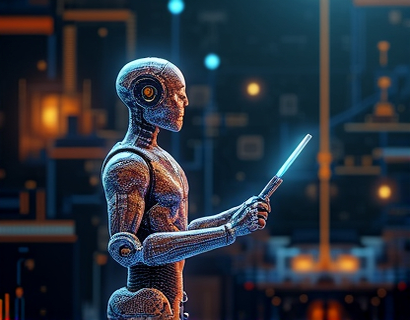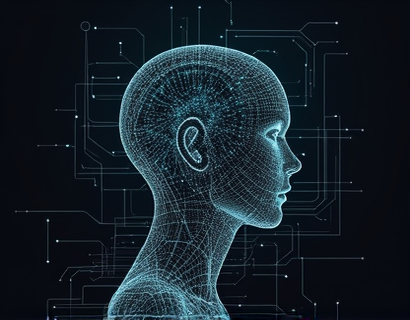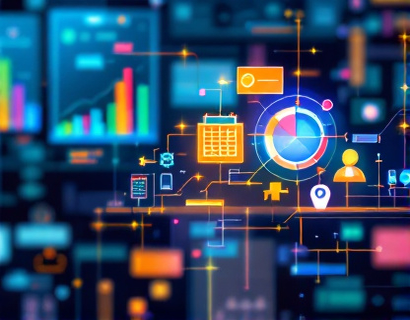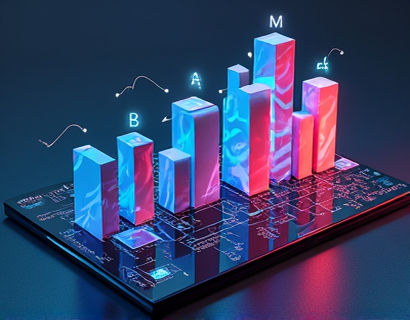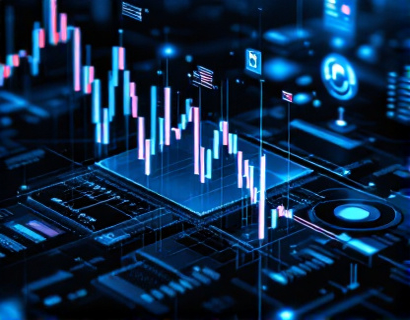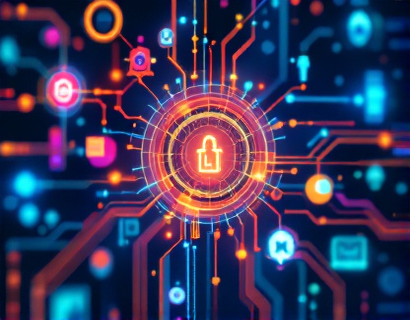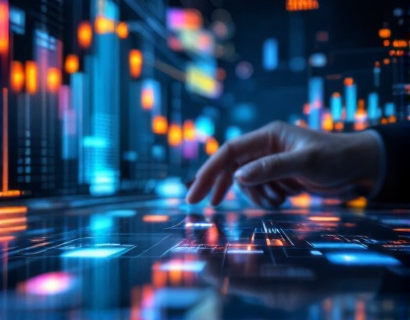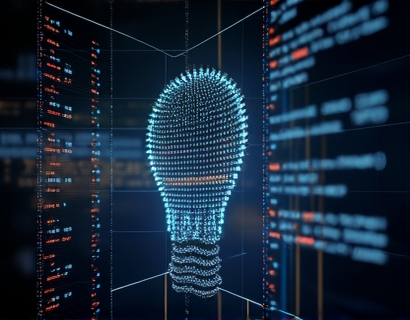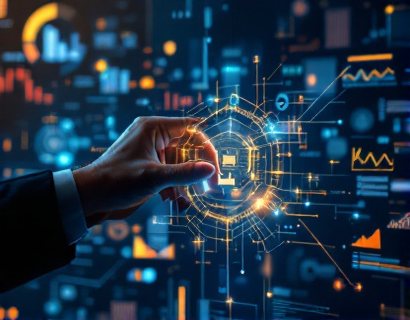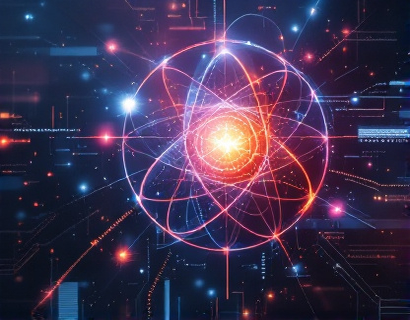AI and Crypto: Pioneering Seamless Digital Transformation with Advanced Blockchain Solutions
The integration of artificial intelligence (AI) and cryptocurrency is ushering in a new era of digital transformation, one that promises to enhance efficiency, security, and innovation across various industries. This synergy between blockchain technology and machine learning is redefining how businesses operate and interact with their customers, offering a competitive edge in the rapidly evolving digital market. This article delves into the powerful combination of AI and blockchain, exploring their potential to drive growth and set new industry standards.
The foundation of this transformation lies in the unique properties of blockchain technology. Blockchain, at its core, is a decentralized ledger that ensures transparency, immutability, and security. These characteristics make it an ideal platform for integrating AI solutions, which thrive on data integrity and robust security measures. By combining these two technologies, organizations can create systems that are not only secure and transparent but also intelligent and adaptive.
Enhancing Efficiency through AI and Blockchain
One of the most significant benefits of integrating AI with blockchain is the enhancement of operational efficiency. Traditional processes often involve multiple intermediaries, leading to delays and increased costs. AI and blockchain can automate and streamline these processes, reducing the need for intermediaries and accelerating transaction times. For instance, in supply chain management, AI can predict demand and optimize inventory levels, while blockchain ensures that every step of the process is recorded and verified in real-time, eliminating discrepancies and fraud.
Smart contracts, a key feature of blockchain technology, play a crucial role in this efficiency boost. These self-executing contracts with the terms directly written into code can automate complex business processes. When combined with AI, smart contracts can analyze data, make decisions, and execute actions without human intervention. This not only speeds up processes but also reduces the risk of human error, ensuring that transactions are executed precisely as intended.
Boosting Security with AI-Powered Blockchain
Security is a paramount concern in the digital age, and the combination of AI and blockchain offers robust solutions to protect sensitive data and transactions. AI algorithms can monitor blockchain networks for unusual activities and potential threats, providing real-time alerts and automated responses to mitigate risks. This proactive approach to security is far more effective than traditional methods, which often rely on reactive measures.
Moreover, AI can enhance the cryptographic techniques used in blockchain, making them more resilient against attacks. Machine learning models can analyze patterns in attack vectors and adapt cryptographic protocols accordingly, ensuring that the blockchain remains secure even as new threats emerge. This dynamic security model is essential for industries handling high-value transactions, such as finance and healthcare, where data breaches can have severe consequences.
Innovation through AI-Driven Blockchain Applications
The synergy between AI and blockchain is not only about efficiency and security; it is also a catalyst for innovation. By leveraging the strengths of both technologies, developers can create novel applications that were previously unimaginable. For example, in the realm of finance, AI-driven blockchain platforms can offer personalized financial advice, automate trading strategies, and detect fraudulent activities with high accuracy. These applications not only improve user experiences but also open up new revenue streams for financial institutions.
In the healthcare sector, AI and blockchain can revolutionize patient data management. AI algorithms can analyze vast amounts of medical data to identify patterns and predict outcomes, while blockchain ensures that this data is stored securely and accessed only by authorized personnel. This combination can lead to more accurate diagnoses, personalized treatment plans, and improved patient care.
Challenges and Considerations
Despite the numerous benefits, the integration of AI and blockchain is not without challenges. One of the primary concerns is the scalability of blockchain networks. Current blockchain technologies often struggle to handle the high volume of transactions required for widespread adoption, especially when combined with AI processes that generate significant data. However, ongoing research and development in areas such as sharding and layer 2 solutions are addressing these scalability issues, paving the way for more robust and efficient blockchain systems.
Another consideration is the regulatory landscape. As AI and blockchain continue to evolve, regulatory bodies are grappling with how to govern these technologies. Ensuring compliance while fostering innovation is a delicate balance, and organizations must stay informed about regulatory changes to navigate this landscape effectively. Collaboration between tech companies, regulators, and industry experts is crucial to develop frameworks that support responsible and ethical use of AI and blockchain.
Case Studies and Real-World Applications
Several organizations are already reaping the benefits of AI and blockchain integration. For instance, a leading logistics company implemented an AI-powered blockchain platform to track shipments in real-time. The system uses AI to predict delivery times and optimize routes, while blockchain ensures that every transaction is recorded and verified. This has resulted in significant cost savings and improved customer satisfaction.
In the energy sector, a renewable energy provider uses blockchain to create a peer-to-peer energy trading platform. AI algorithms optimize energy distribution based on demand and supply, ensuring that excess energy from renewable sources is efficiently utilized. Blockchain ensures that transactions are transparent and secure, fostering trust among participants.
Future Prospects
The future of AI and blockchain integration holds immense potential. As technology advances, we can expect to see more sophisticated applications that further enhance the capabilities of both AI and blockchain. Quantum computing, for example, could revolutionize blockchain by enabling faster and more secure transactions, which in turn would make AI-driven blockchain solutions even more powerful.
Additionally, the rise of decentralized finance (DeFi) and non-fungible tokens (NFTs) is creating new opportunities for AI and blockchain to collaborate. AI can optimize DeFi protocols, improve risk management, and enhance user experiences, while blockchain provides the secure and transparent foundation for these innovations. The convergence of these technologies is likely to drive significant changes in how we conduct financial transactions, create digital assets, and manage data.
In conclusion, the integration of AI and blockchain is a transformative force in the digital world. By combining the strengths of these technologies, organizations can achieve unprecedented levels of efficiency, security, and innovation. As the landscape continues to evolve, those who embrace this synergy will be well-positioned to lead the charge in the next phase of digital transformation.








